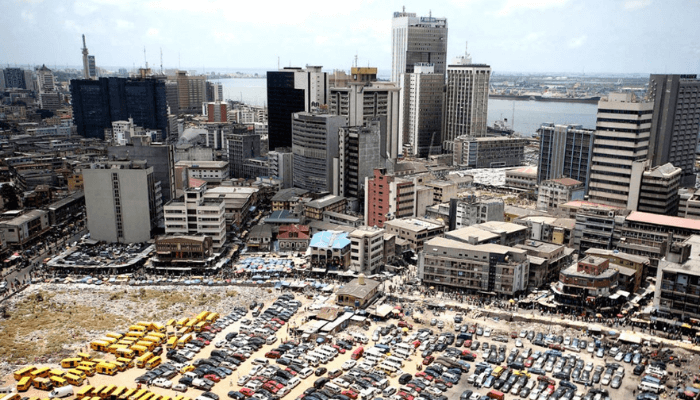Hustle economy: 93% of Nigerians in ‘survivalist’ informal employment
Nigeria’s economy is running on a ‘survivalist’ mode, as 93 percent of the nation’s workforce is trapped in informal employment, according to a report.
The findings are based on the 2025 report by the Nigerian Economic Summit Group (NESG) entitled ‘From Hustle to Decent Work: Unlocking Jobs and Productivity for Economic Transformation in Nigeria.’
The report highlights that there is an overwhelming reliance on informal work, often ‘survivalist’ activities which are actively hindering national development and poverty reduction.
Analysis reveals that 81 percent of Nigerian workers are concentrated in sectors such as subsistence agriculture and retail trade, which offer very low productivity.
Read also: Nigeria can transform tough reforms into shared prosperity, unlock $1trn economy — NESG
The jobs, in particular, range from petty trading and informal transport to roadside services engaged by millions of Nigerians.
These forms of work offer severely limited opportunity for productivity gains and income mobility.
According to Musa Yusuf, founder of the Centre for the Promotion of Private Enterprise, “Those are the people sustaining the economy through creativity, resilience and hard work. Yet, from a policy point of view, the informal sector receives little serious attention.
“If the sector delivers over 90 percent of jobs, what is the policy framework to support it? Many operators are harassed as markets are demolished, artisans displaced, mechanics taxed and fined…Their contribution to the economy is over N60 trillion, dominant in trade, agriculture and blue-collar work…”
In a similar vein, Chinwe Egwim, Eeconomist and banker, noted: “It’s not surprising that over 90 percent of jobs are in the informal sector. Many Nigerians lack the necessary skills and education to fill roles in the formal sector, leading to high underemployment.”
The productivity trap
According to the report, the scale of informal work is directly linked to Nigeria’s long-standing struggles with low labour productivity.
For nearly three decades, from 1990 to 2018, Nigeria’s labour productivity growth averaged a meagre 1.5 percent and has since been in decline.
This contrasts sharply with nations such as Indonesia and Malaysia, which saw gains of 2.5 percent over the same period, demonstrating the potential for growth with sustained economic reforms.
This deeply entrenched issue is compounded by persistent national crises, including inadequate infrastructure, erratic power supply, low industrial output, and widespread insecurity.
The shrinking formal sector
The root cause of the informal explosion is the inability of the formal private sector to generate adequate jobs, the report said.
Over the last decade (2015–2024), macroeconomic instability marked by two economic recessions – a volatile currency, and soaring inflation – have increased the cost of doing business, constraining firms’ capacity to expand and hire.
Read also: Reclaiming Nigeria’s Blue Economy: Anchoring sovereignty, jobs, and growth by 2035
Formal jobs accounted for a meagre 7.8 percent of total employment as of 2023, according to the National Bureau of Statistics (NBS, 2024), which underscores a weak private sector.
Furthermore, only 15 percent of all employed Nigerians are wage earners, meaning 85 percent are self-employed, often operating outside the protection of formal labour laws.
This labour market is strained further by an estimated 3.5 million young Nigerians entering the workforce annually. Many are forced into underemployment, taking on roles like PoS operations and informal transport gigs that are below their potential.
Regional disparities
The crisis is not uniform across Nigeria, and regional disparities highlight the uneven economic landscape.
While states such as Lagos, the Federal Capital Territory (FCT) and Oyo show the highest shares of wage earners (Lagos at 33.8 percent, FCT at 27.2 percent), indicating a relatively stronger, albeit still insufficient, the northern states tell a different story.
The northern states such as Jigawa (3.3 percent), Sokoto (3.8 percent), and Kebbi (4.6 percent) have the lowest shares of wage earners, highlighting a heavy reliance on government and informal activities for employment.
Skill deficit and talent migration
Exacerbating the job crisis is a severe skills deficit.
Employers report struggling to find workers with the necessary technical and soft skills such as problem-solving and digital literacy for the few mid-productivity jobs that are available.
An emerging and compounding problem is ‘japa,’ the increasing migration of skilled Nigerian workers.
Professionals in medicine, ICT, finance, and professional services are leaving for countries with better pay and working conditions, creating a growing talent gap that further weakens the capacity of domestic firms to grow, innovate, and compete in a low-productivity environment, the report noted.
Read also: Tinubu defends economic reforms, boasts of rising revenues, debt stability at 31st NESG
The informal sector, which climbed to 93 percent of total employment in the second quarter of 2024, has dire national implications. Firstly, limited revenue mobilisation is a key consequence, as informality undermines the government’s ability to collect taxes effectively.
Unlocking Nigeria’s potential hinges on fundamental structural reforms aimed at strengthening the formal private sector, addressing the skills gap through education investment, and creating a macroeconomic environment that incentivises business expansion and, crucially, the creation of decent, high-productivity jobs at scale.
Similarly, Egwum advised, “We need to strengthen education and skills acquisition, while investing more in the blue-collar economy. If sectors such as plumbing, welding, and similar trades are better structured, we would see these numbers decline significantly.”

